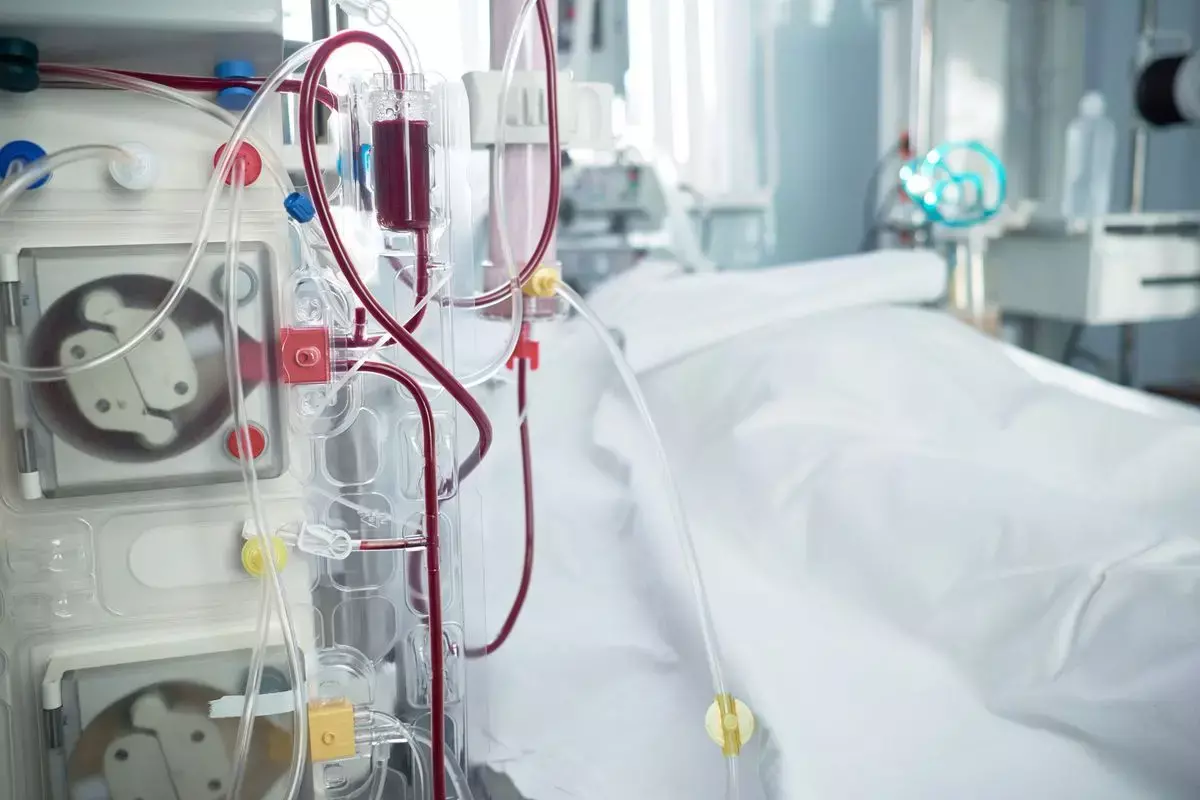- Home
- Medical news & Guidelines
- Anesthesiology
- Cardiology and CTVS
- Critical Care
- Dentistry
- Dermatology
- Diabetes and Endocrinology
- ENT
- Gastroenterology
- Medicine
- Nephrology
- Neurology
- Obstretics-Gynaecology
- Oncology
- Ophthalmology
- Orthopaedics
- Pediatrics-Neonatology
- Psychiatry
- Pulmonology
- Radiology
- Surgery
- Urology
- Laboratory Medicine
- Diet
- Nursing
- Paramedical
- Physiotherapy
- Health news
- Fact Check
- Bone Health Fact Check
- Brain Health Fact Check
- Cancer Related Fact Check
- Child Care Fact Check
- Dental and oral health fact check
- Diabetes and metabolic health fact check
- Diet and Nutrition Fact Check
- Eye and ENT Care Fact Check
- Fitness fact check
- Gut health fact check
- Heart health fact check
- Kidney health fact check
- Medical education fact check
- Men's health fact check
- Respiratory fact check
- Skin and hair care fact check
- Vaccine and Immunization fact check
- Women's health fact check
- AYUSH
- State News
- Andaman and Nicobar Islands
- Andhra Pradesh
- Arunachal Pradesh
- Assam
- Bihar
- Chandigarh
- Chattisgarh
- Dadra and Nagar Haveli
- Daman and Diu
- Delhi
- Goa
- Gujarat
- Haryana
- Himachal Pradesh
- Jammu & Kashmir
- Jharkhand
- Karnataka
- Kerala
- Ladakh
- Lakshadweep
- Madhya Pradesh
- Maharashtra
- Manipur
- Meghalaya
- Mizoram
- Nagaland
- Odisha
- Puducherry
- Punjab
- Rajasthan
- Sikkim
- Tamil Nadu
- Telangana
- Tripura
- Uttar Pradesh
- Uttrakhand
- West Bengal
- Medical Education
- Industry
Low Potassium Dialysate Improves Hyperkalemia in ESRD patients

Hyperkalemia is a modifiable risk factor for sudden cardiac death, a leading cause of mortality in hemodialysis patients. A study published in the Clinical Kidney Journal on December 17, 2020, suggests that a low potassium bath for the treatment of severe hyperkalemia (>6.5 mmol/L) in hospitalized end-stage renal disease (ESRD) patients are associated with decreased in-hospital mortality or cardiac arrest.
Pre-dialysis hyperkalemia is associated with higher mortality in ESRD patients on maintenance hemodialysis (HD) in the outpatient setting. The optimal treatment of hyperkalemia in hospitalized ESRD patients is nonexistent in literature which has prompted studies from outpatient dialysis to be extrapolated to inpatient care. Therefore, researchers of the University of Wisconsin School of Medicine and Public Health, USA, conducted a study to determine whether low potassium dialysate 1 meq/L is associated with higher mortality in hospitalized ESRD patients with severe hyperkalemia (serum potassium > 6.5 mmol/L).
It was a retrospective study of all adult ESRD patients admitted with severe hyperkalemia between January 2011- August 2016. The researchers included a total of 209 ESRD patients with severe hyperkalemia during the study period. The major outcome assessed was in-hospital death or cardiac arrest. Most patients received the 1 mEq/L potassium bath during the first hour of dialysis, then transitioned to higher potassium baths.
Key findings of the study were:
- Upon analysis, the researchers found that In-hospital mortality or cardiac arrest in ESRD patients with severe hyperkalemia was 12.4%.
- They noted that the median time to dialysis after serum potassium result was 2.0 hours (25, 75 IQR 0.9, 4.2 hours).
- They found that the use of 1mEq/L potassium bath was associated with significantly lower mortality or cardiac arrest in ESRD patients admitted with severe hyperkalemia (OR 0.27).
The authors concluded, "Use of 1K dialysis bath in hospitalized ESRD patients with severe hyperkalemia was associated with significantly lower risk of death or cardiac arrest compared to higher potassium dialysis bath."
For further information:
Dr Kartikeya Kohli is an Internal Medicine Consultant at Sitaram Bhartia Hospital in Delhi with super speciality training in Nephrology. He has worked with various eminent hospitals like Indraprastha Apollo Hospital, Sir Gangaram Hospital. He holds an MBBS from Kasturba Medical College Manipal, DNB Internal Medicine, Post Graduate Diploma in Clinical Research and Business Development, Fellow DNB Nephrology, MRCP and ECFMG Certification. He has been closely associated with India Medical Association South Delhi Branch and Delhi Medical Association and has been organising continuing medical education programs on their behalf from time to time. Further he has been contributing medical articles for their newsletters as well. He is also associated with electronic media and TV for conduction and presentation of health programs. He has been associated with Medical Dialogues for last 3 years and contributing articles on regular basis.
Dr Kamal Kant Kohli-MBBS, DTCD- a chest specialist with more than 30 years of practice and a flair for writing clinical articles, Dr Kamal Kant Kohli joined Medical Dialogues as a Chief Editor of Medical News. Besides writing articles, as an editor, he proofreads and verifies all the medical content published on Medical Dialogues including those coming from journals, studies,medical conferences,guidelines etc. Email: drkohli@medicaldialogues.in. Contact no. 011-43720751


